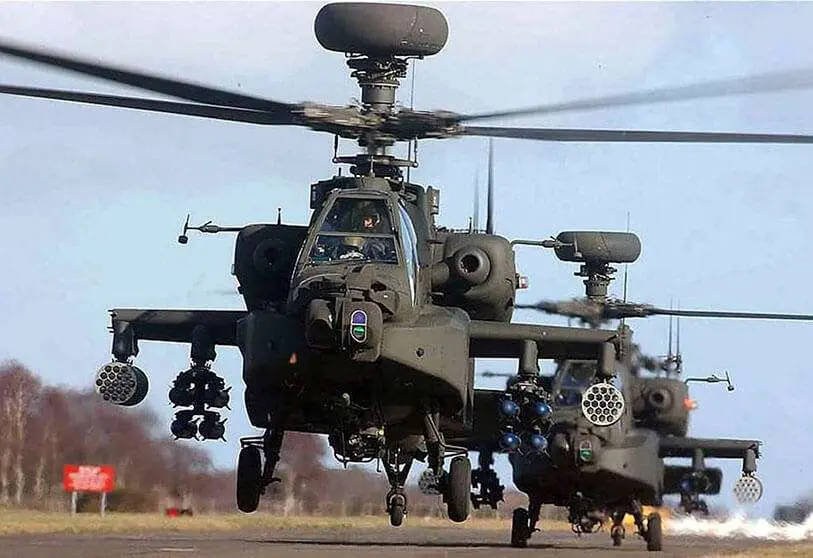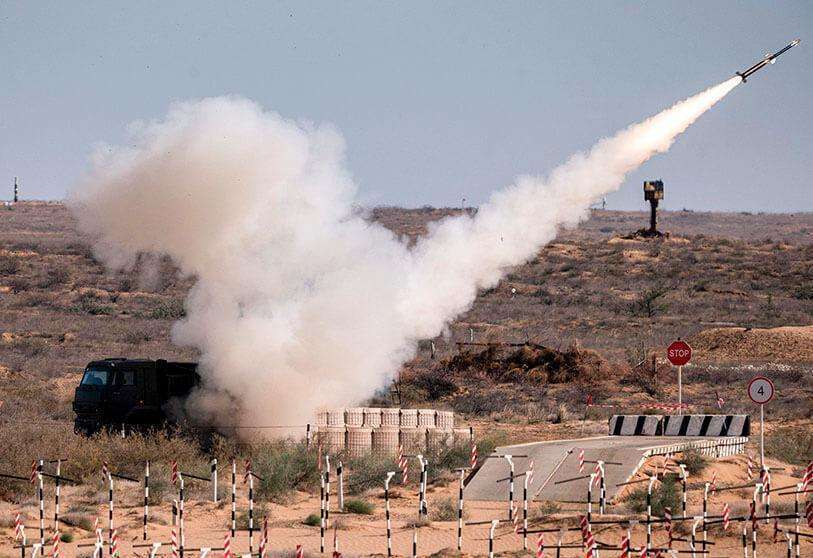Arms industry growing despite pandemic

The manufacture and sale of weapons, one of the global businesses that does not seem to be affected by the coronavirus pandemic, continues to flourish. Sales of weapons and military services by the 100 largest companies in the sector (excluding Chinese) amounted to $420 billion. This is established in the 2019 Yearbook of the Stockholm International Peace Institute (Sipri), published on 9 December. The Institute also establishes a list of awards, according to which the top 25 major players in the armaments sector account for 361 billion dollars, that is 8.5 percent more than in 2018.
The data compiled by the Institute shows that world military expenditure amounts to $1.822 trillion, equivalent to 2.1 percent of world GDP and $239 per person. The Americas, Asia and Oceania, particularly the United States and China, have the highest military expenditure in the world. Europe recorded an increase of 1.4 percent, owing mainly to a rise in Western Europe, where all but three countries increased their expenditure. In contrast, military expenditure in Africa fell by 8.4 per cent.
By country, the countries that recorded the highest military expenditure at the end of 2018 were, in that order, the United States, China, Saudi Arabia, India and France, which together account for 60 per cent of the world total. However, the differences between these top five are overwhelming: the US, with 694 billion dollars, accounted for 36 per cent of the world total and 2.6 times that of China, which was 250 billion dollars. In terms of GDP, Saudi Arabia has the biggest military burden in the world, accounting for 8.8 percent of its gross domestic product. The Saudi monarchy spent a total of $67.6 billion, closely followed by India ($66.5 billion) and France ($63.8 billion). All of them exceed Russia, whose $61.4 billion in military expenditure represents a 22 per cent fall from the peak reached in 2016 after the end of the Cold War.
The three largest relative increases in military spending were recorded by Burkina Faso (52 percent), Jamaica (40 percent) and Armenia (33 percent), while the three largest relative decreases were recorded by Southern Sudan (50 percent), Sudan (49 percent) and Benin (28 percent).

Despite those who predicted the "decline of the American empire", the Sipri stresses that, for the first time since 2002, the five arms companies that lead the world ranking are based in the USA: Lockheed Martin, Boeing, Northrop Grumman, Raytheon and General Dynamics. These five giants sold $148 billion worth of weapons systems, or 35 per cent of the Top 100 arms sales, with an annual increase of 7.2 per cent. Together with the other smaller US companies, which also appear among the top 100, the total turnover of US corporations amounted to $246 billion, or 59 percent of the total weapons sold by the Top 100.
In addition, and in accordance with President Donald Trump's orders in 2017, there is an even greater trend towards the concentration of the major arms producers in order to address the modernisation demanded by Trump, which far from marking a decline outlines a path of greater growth and turnover for the new decade.
Apart from the ten Russian companies listed, Europe includes a total of 27 companies with total sales equivalent to $102 billion. A decline of 4.8 percent can be observed in the eight based in the United Kingdom, although they are still the highest in Europe, with BAE Systems ranked sixth on the world list, being the world's largest arms producer outside the United States.
The $35.1 billion in arms sold by the British are followed by the $23.2 billion of the six French companies, led by the Dassault Aviation fighter planes, which boosted their turnover by 30 percent. By contrast, 3.8 percent of the four German companies included in the ranking fell, with strong increases in sales of military vehicles by Rheinmetall, offset by decreases in ship sales by ThyssenKrupp.
Also noteworthy is the stability in the arms sales business of the six Japanese companies (2.4% of the total in the ranking) and that of the three Israeli companies (2.1%), but where the projection of Elbit Systems, Israel Aerospace Industries and Rafael have definitively established themselves in the market.
In this fiftieth edition of its Yearbook, the Sipri has included Chinese manufacturers for the first time. Four of them, especially Aviation Industry Corporation of China (AVIC), appear in the top 25 of the ranking. The Sipri makes it clear that other Chinese companies could have been included as well, but the inadequacy of the data provided prevents them from being included for the time being.
The first conclusion is therefore quite obvious: the arms industry is in very good health. The coronavirus, which is decimating populations throughout the world, does not attack a sector that is so decisive in killing that it deters the enemy from doing so. Because, despite the best of intentions, there will never be a world that is so ideal that it does not have room for weapons.

